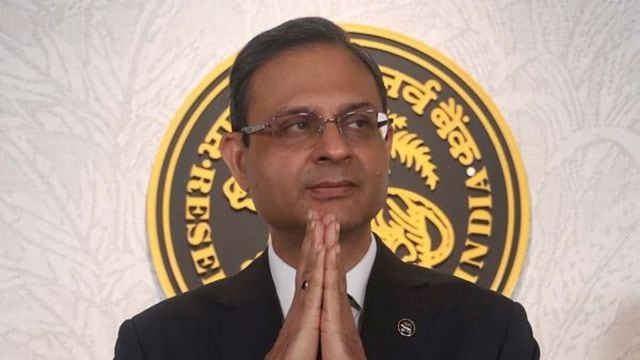Even as the Reserve Bank of India’s (RBI) flexible inflation targeting framework is being reviewed, Governor Sanjay Malhotra said on Friday that the central bank has no independence in setting the inflation target.
“Independence, this is a question which now has engaged the attention of the world, especially what is happening in some of the advanced countries,” Malhotra said at the Kautilya Economic Conclave, organised by the Ministry of Finance and New Delhi-based Institute of Economic Growth. “So, while it comes to setting of the target, there is no independence that the Reserve Bank has. It only has a view, which is communicated to the government,” Malhotra said, although he added the central bank did have independence and flexibility in how it achieves the target.

The RBI officially adopted the flexible inflation targeting framework in August 2016. As per the framework, the RBI has a medium-term target of 4 per cent in a band of 2-6 per cent for Consumer Price Index (CPI) inflation. The target is valid for a period of five years, with the current cycle ending in March 2026.
Over the years, the framework has visibly helped bring down CPI inflation, with the RBI forecasting that it will average just 2.6 per cent in the current fiscal, down from 4.6 per cent in 2024-25. In August, the RBI released a discussion paper on the framework, seeking feedback on four key questions: if monetary policy should target headline or core inflation, if the current 4 per cent target remains optimal to balance growth and stability, whether the tolerance band of 2-6 per cent needs to be revised or even dropped, and if the target rate of 4 per cent should be removed and only a range be maintained.
In its discussion paper, the RBI also warned that raising the inflation target at the current juncture could be seen as a dilution of the framework and lead to the loss of policy gains made over the last decade or so.
On Friday, Malhotra said where the RBI did have independence and flexibility, though, is how it achieves its inflation target. The law also ensures the RBI is held accountable: if average quarterly inflation is outside the 2-6 per cent range for three consecutive quarters, the RBI has to send a report to the government explaining why it failed to meet its mandate, how quickly it will bring it back to the target range, and what steps it will take to ensure the same. As such, Malhotra said, independence and accountability “goes hand in hand”. On the whole, Malhotra said the monetary policy framework has “worked very well”. Malhotra said that even when it came to setting the monetary policy, it wasn’t the RBI but the Monetary Policy Committee that is responsible. The six-member committee has equal representation from the central bank and independent experts from the field of finance and economics.
“RBI has a major say over there, but then external members too have an equal say. So the Reserve Bank has more of an — if you (can) call it independence or responsibility — the responsibility shifts from the Central government, which has the target fixing as the primary role, to the operational target — the policy rate — being set by… the central bank,” the governor said.
Story continues below this ad
On the subject of independence, Malhotra added it is important that not just institutions such as the government and the RBI but also the individuals within them were independent, which is “a virtue…which we all need to promote and protect”. “And India has done very well in giving the Reserve Bank, its central bank, the independence where it’s required, but with accountability features built into it.”
Commenting more broadly on the Indian economy, the RBI Governor said the country has been an anchor of stability in a volatile world, with its strong fundamentals built on the
back of low inflation, good foreign exchange reserves, a narrow current account deficit, and strong balance sheets of banks and corporates.
“All in all, despite recent odds, the economy seems well settled into an equilibrium of resilient growth. This is quite a feat that makes India stand out as an anchor of stability in a volatile world,” he said.


































